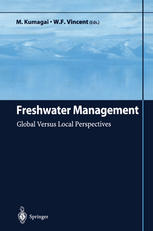

Most ebook files are in PDF format, so you can easily read them using various software such as Foxit Reader or directly on the Google Chrome browser.
Some ebook files are released by publishers in other formats such as .awz, .mobi, .epub, .fb2, etc. You may need to install specific software to read these formats on mobile/PC, such as Calibre.
Please read the tutorial at this link: https://ebookbell.com/faq
We offer FREE conversion to the popular formats you request; however, this may take some time. Therefore, right after payment, please email us, and we will try to provide the service as quickly as possible.
For some exceptional file formats or broken links (if any), please refrain from opening any disputes. Instead, email us first, and we will try to assist within a maximum of 6 hours.
EbookBell Team

4.7
66 reviewsThe globalization of trade, monetary and fiscal policies, capital markets, and investment patterns is reshaping the world economy and is leading to new financial, commercial, and marketing structures as well as unprecedented economies of scale. Simultaneously, national and international awareness and to strengthen. There is consensus among responses to accelerating environmental degradation continue most developed countries that the rapidly evolving new economic order needs to be well integrated with policies to maintain or restore environmental quality. Many challenges remain, however, in evaluating the geo-ecological implications of economic globalization, and in formulating the appropriate management responses. In lakes and rivers, the management of water supply and quality has largely proceeded on the basis of local considerations rather than at the global scale that has been more typical of environmental management of the atmosphere and ocean. It is increasingly apparent, however, that high-quality water resources are now in critically short supply not only because of local problems such as over-irrigation and eutrophication, but also as a result of larger-scale climate effects on the hydrosphere. This magnitude of impact will increasingly require the integrated monitoring and management of water resources on a planetary scale, with world criteria for environmental assessment, restoration, and conservation strategies. The increasing extent of world trade in potable freshwater heightens the urgency for establishing international approaches, criteria, and regulations.